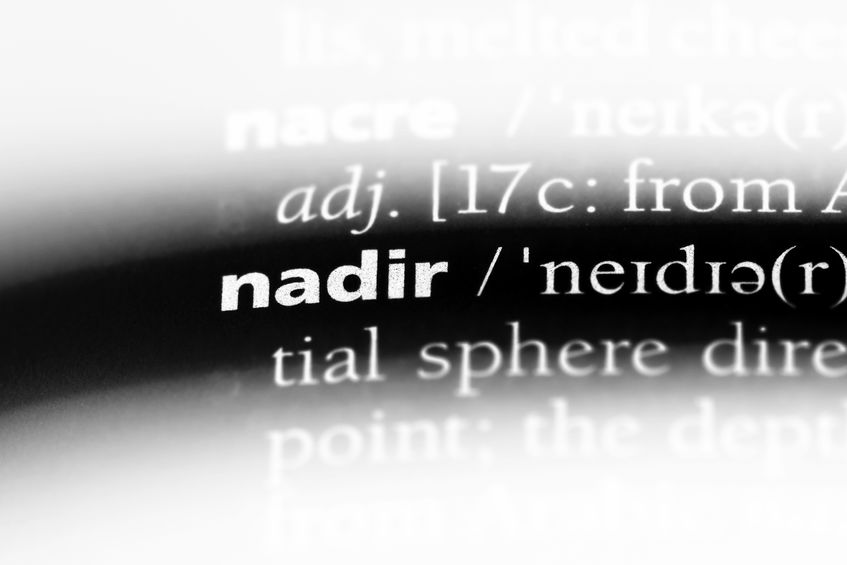
Jean-Paul Sartre, author of Huis Clos, wrote L’enfer, c’est les autres (Hell is other people). Maybe that’s true in a pandemic. However, in this period of social distancing and self-isolation, we still have the luxury of reading. In particular, I’m rereading the excellent book titled The Mother Tongue – English and How It Got That Way by Bill Bryson. Bryson writes that “English retains probably the richest vocabulary and most diverse shading of meanings, of any language.” He adds, “Despite this bounty of terms, we have a strange — and to foreigners it must seem maddening — tendency to load a single word with a galaxy of meanings” (pp. 68-69). These points hit the nail on the head with respect to political commentary. The best political commentary is marked by its wit, incisiveness and, yes, the richness of its vocabulary. It’s not the political aspect, but the writing aspect that I enjoy.
Did you know that “nadir” is the opposite of “zenith” in astronomy? Max Fawcett wrote in Chatelaine (“Do We…Like Doug Ford Now?”) recently that Premier Ford’s “dumpster-fire adjacent government” may have “reached its nadir,” or its lowest point, when Ontario’s new licence plates couldn’t be seen at night, adding “And remember: Ford’s family made its bones in the label business.” Here’s another interesting expression: “made its bones” means to establish one’s bona fides or make one’s name. Fawcett’s article emphasizes these negative points at the outset to highlight the premier’s transformation into “an inspirational national leader.”
In Maclean’s (“In Doug Ford’s Ontario, Knowledge Is Sorrow”), Paul Wells wrote that the “Only way to deny purchase to an infectious disease is to give it fewer chances to infect.” The noun “purchase” in this context means a hold or position on something for applying power advantageously.
Other interesting expressions found in the above-mentioned articles:
- A shock-and-awe rescue package. [Fawcett]
- A tone-deaf approach. [Fawcett]
- Drop our guard, and the scale of slaughter spirals higher. [Wells]
- The delta between 3,000 and 100,000 dead is the difference between diligence and laxity. [Wells]
- Handing out plaudits. [Fawcett]
- Sparked howls of outrage. [Fawcett]
So, fellow language nerds, be sure to include political commentary on your reading list. And stay safe.
___
Previous post from Barbara McClintock: The Singular “They” — Conjugations and Some Particularities
The Editors’ Weekly is the official blog of Editors Canada. Contact us.
Discover more from The Editors' Weekly
Subscribe to get the latest posts to your email.
